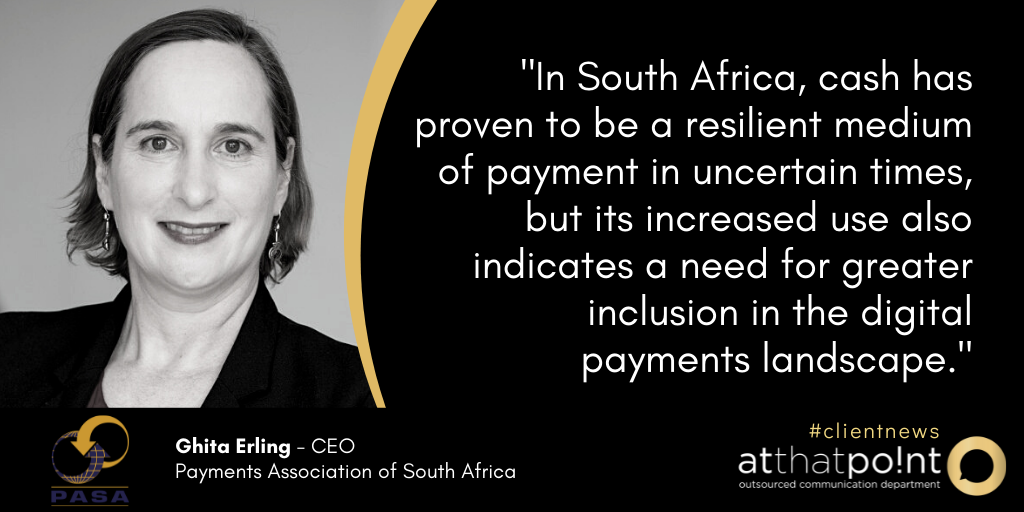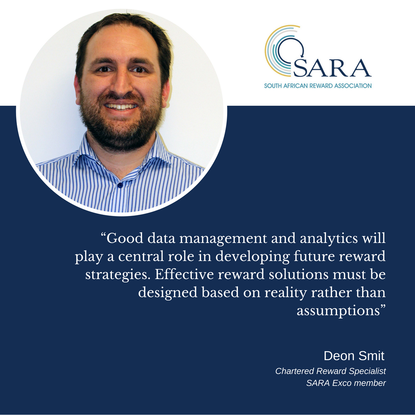|
Authored by: Dr Mark Bussin (Master Reward Specialist) and Yolanda Sedlmaier (Chartered Reward Specialist), Executive Committee Members of the South African Reward Association (SARA)
Before COVID-19 hit the world, the approach to reward was well defined. Organisations paid their employees a fixed basic salary, plus a set of additional benefits that effectively sweetened the pot. The fixed portion served to ensure workers received an equitable market-related income. The variable portion, on the other hand, extended into performance related rewards such as sales commissions and annual bonuses. Variable pay itself is categorised into two components. Short-term incentives (STIs) are attached to annual performance. Long-term incentives (LTIs), like company shares, are often contingent on employees meeting negotiated performance criteria. At the same time, employers were embracing experiential rewards, like wellness programmes, workplace comfort, flexitime, outstanding performance recognition and other non-financial benefits. The pandemic has turned this model on its head, forcing employers to consider different ways to attract, retain and motivate talented workers, and this without the resources previously at their disposal due to the wide ranging economic impact of the pandemic. How fixed pay has changed There have been no permanent changes in fixed pay policy itself. However, with so many staff being retrenched and businesses closing down, employees are more willing to accept the pay cuts their employers are forced to implement. It is obviously better to have less income than no income at all. What has changed is that employers are offering more options. These could include flexible working hours, paid or unpaid sabbaticals, or reduced hours for reduced pay. Something we are seeing, however, is a global trend towards lower variable pay in exchange for a small increase in monthly fixed pay. This is to provide the security employees need in the short term, although its adoption is not as prevalent in South African boardrooms, although we expect it will be in the near future. How variable pay has changed Variable pay is generally accepted to be that part of the reward package more readily tweaked to motivate employees and encourage better performance from them. Now, with almost all employers struggling to save jobs and keep their doors open, they face limited options. Most have managed to retain basic benefits, like medical aid and retirement funding. What has been more affected is incentives, such as sales commissions, overtime, annual bonuses, and even executive performance bonuses. With the global business slowdown, workers are unable to reach previously achievable targets, so employers aren’t earning the profits needed to reward them. To date, most organisations have been unable to innovate their reward programmes. They’ve been too busy trying to cut costs and negotiating with employees to choose between retrenchments or pay cuts. Unsurprisingly, workers generally opted for a lower salary over the uncertainty that they might be the ones left without a job. Productivity In spite of these dramatic events, many companies report an increase in productivity. This is due to flexible working arrangements allowing employees to save time and money not travelling to the office. It’s also an indicator that employees who are allowed to schedule their own time will do so responsibly. They can start working immediately and will often put in additional hours to make up for time spent on personal tasks. These might include caring for children, home schooling and homecare duties, or transporting them to school and back. Stay-at-home employees also insist they are working longer and harder than ever before. The effect of vaccination on rewards As vaccinations start rolling out in South Africa, we don’t expect this to have a direct or immediate effect on rewards. However, the more South Africans are vaccinated as a society, the quicker employees can return to work full time, and the sooner secondary effects will be realised, like the return of tourists to our shores. As this happens, we can expect a gradual economic recovery that should have a positive effect on employee reward packages. Two main trends In terms of their workforce, employers are focusing on two main concerns. The first is a complete review of their HR policies in relation to dealing effectively with and setting pay for workers who are not located on premises. These new policies are no longer founded on inputs and time spent at the place of business. Instead, they consider the outputs, outcomes and impact of these workers, and how to prepare managers to lead them remotely. The second is that we’re witnessing a major shift towards protecting employees’ mental health and well-being, and assisting them with professional loneliness. As the pandemic drags on, this will doubtless become a key element of every organisation’s reward strategy. ENDS MEDIA CONTACT: Rosa-Mari Le Roux, 060 995 6277, [email protected], www.atthatpoint.co.za For more information on SARA please visit: Website: www.sara.co.za Twitter: @SA_reward LinkedIn: South African Reward Association Facebook: SARA – South African Reward Association
0 Comments
Companies usually base how they pay and reward their employees on financial data. Deon Smit, Chartered Reward Specialist and Executive Committee Member at the South African Reward Association (SARA), says that corporate communications like emails or instant messages, social media posts and many other data sources should be used to provide deeper insights.
These insights can help to keep financial and non-financial elements of remuneration relevant to what employees need as motivation. “Good data management and analytics will play a central role in developing future reward strategies. Effective reward solutions must be designed based on reality rather than assumptions,” says Smit. “Reward practitioners must start taking responsibility to gather the right information and develop the ability to draw valid conclusions from the data available.” Smit offers the following practical guidance: Start with a purpose It’s important to decide what business problems should be solved first and what data is best suited to that purpose. “Tackle the simple business problems first and build up to the big ones,” advises Smit. “This will help you get your data and your process right at each discrete level of growing complexity.” HR and people data will be central to efforts, but strategic, financial, and corporate communications data will also play an important role. Be a visionary For most problems, a large set of historical data is needed to facilitate predictive analysis and produce accurate results. “You have to decide what you want to measure in 6 months from now, build the datasets and make sure the data is accurately captured,” says Smit. “Only after that period will you have enough to work with.” Clean up “One of the first mistakes companies make is to start with incomplete, incompatible or mismatched data,” reports Smit. The data collection methodology employed must be consistent to ensure there are no information gaps that could produce misleading results. Learn Reward practitioners should understand how datasets are constructed, how relational databases work and how unstructured data found in emails, social posts and other digital sources can be collected. They also need to evolve past Excel and embrace programming languages like R (a statistical language), Python (a general programming language) or SQL (a database query language). In addition, business intelligence and data analysis skills are essential. This may seem unnecessary for reward programmes but Smit foresees that these competencies will be in demand in the future. “HR will start hiring data specialists over people specialists because data will become the key to understanding workforce behaviours and motivators,” says Smit. He suggests that practitioners become self-educated to increase their value. Universities now offer numerous free courses on these subjects through MOOC (massive open online courses) platforms. Don’t forget qualitative inputs Although quantitative analysis - mathematical and statistical modelling - is critical, reward specialists should not overlook qualitative analysis - the study of observable behaviour or structure. “Don’t become too focused on the numbers,” recommends Smit. “They need to be viewed in conjunction with phenomena like group dynamics, behavioural psychology, generational concerns, cultural norms and other non-numerical inputs.” Start over Data analysis must always solve a business problem. Once the collected information has been studied and understood, reward specialists can develop innovative solutions and drive their implementation forward. Smit concludes: “After a solution has been found, the cycle will start over so that another – more complex – business problem can be targeted.” ENDS MEDIA CONTACT: Juanita Vorster, 079 523 8374, [email protected], www.atthatpoint.co.za For more information on SARA please visit: Website: www.sara.co.za Twitter: @SA_reward LinkedIn: South African Reward Association Facebook: SARA – South African Reward Association  Recent reports have highlighted the disparity in remuneration between CEOs and workers. Consequently, many commentators have questioned the fairness of executive packages, calling for greater regulation of those salaries and benefits. According to Dr Mark Bussin, Executive Committee Member of the South African Reward Association (SARA), this is a problem domain ideally suited to the Reward Specialist. “First,” says Dr Bussin, “one must understand how remuneration is determined at various levels.” General workers For general workers, a fair wage is decided through collective bargaining, striking a balance between what employers can afford and trade union negotiators are willing to accept. “It’s notable that recent increases have been in the 7% to 8% range - higher than CEOs,” reports Dr Bussin. “Companies, aware of the pay gap, it seems, are trying to close it.” Salaried staff For salaried staff, various factors are considered, including salary surveys, inflation, education, personal performance, and the scarcity of an employee’s skills. “Ultimately,” says Dr Bussin, “the finance department budgets for an overall payroll increase in line with inflation, currently around 6%.” CEOs and directors Executive salaries are more complex. Dr Bussin explains that CEOs and directors face much higher pressure than other employees. “Their track record for leading companies successfully in the face of overwhelming personal risk is why they’re engaged. As such, they command commensurate reward.” They’re usually compensated in two ways. Fixed pay Executive officers get a fixed salary that is mainly determined by benchmarking. This includes salary surveys and comparative studies of companies of similar size and complexity. Their pay in relation to these measurements will depend on the organisation’s remuneration policies. Variable pay Executive officers also receive short-term and long-term incentives. Short-term incentives are based on performance targets that, if achieved, usually result in a reward of between 50% to 100% of fixed annual salary. Long-term incentives, linked to company performance, are full shares and share appreciation - the value of the increase in share price. Pay discrepancies However, an ill-conceived remuneration package can reward even an underperforming executive officer. “These are the cases we see highlighted in the media,” observes Dr Bussin. “The perception that executives are overpaid is then generalised when, most often, their salaries are carefully formulated against industry norms.” Real or imagined, companies want to avoid any notion of biased remuneration. Dr Bussin says the King IV Report offers greater transparency by requiring executive remuneration reporting as a single total figure. “Businesses can leverage this opportunity to show that their executive officers are indeed compensated fairly.” The Reward Specialist A Reward Specialist should be engaged to ensure executive pay does not overstep the boundaries of sanity. At times, shareholders or the board may be desperate to turn a company’s fortunes around, making them bullish about a maverick hire. Here, the Reward Specialist offers an impartial perspective based on in-depth analysis. “Lastly,” concludes Dr Bussin, “Reward Specialists can create a communication plan that educates employees, shareholders and the public on company remuneration policies and executive compensation, avoiding both the reality and perception of their executives being overpaid.” ENDS MEDIA CONTACT: Carla Coetzee, [email protected], www.atthatpoint.co.za For more information on SARA please visit: Website: www.sara.co.za Twitter: @SA_reward LinkedIn: South African Reward Association Facebook: SARA – South African Reward Association |
Archives
March 2023
Welcome to the South African Reward Association newsroom.
Categories
All
|



 RSS Feed
RSS Feed